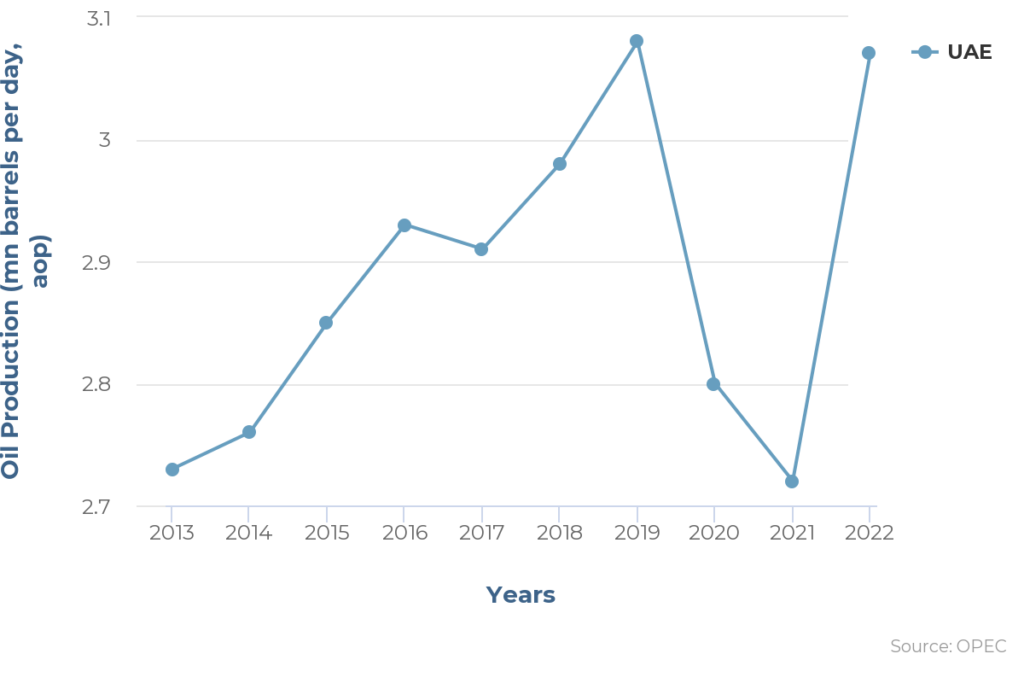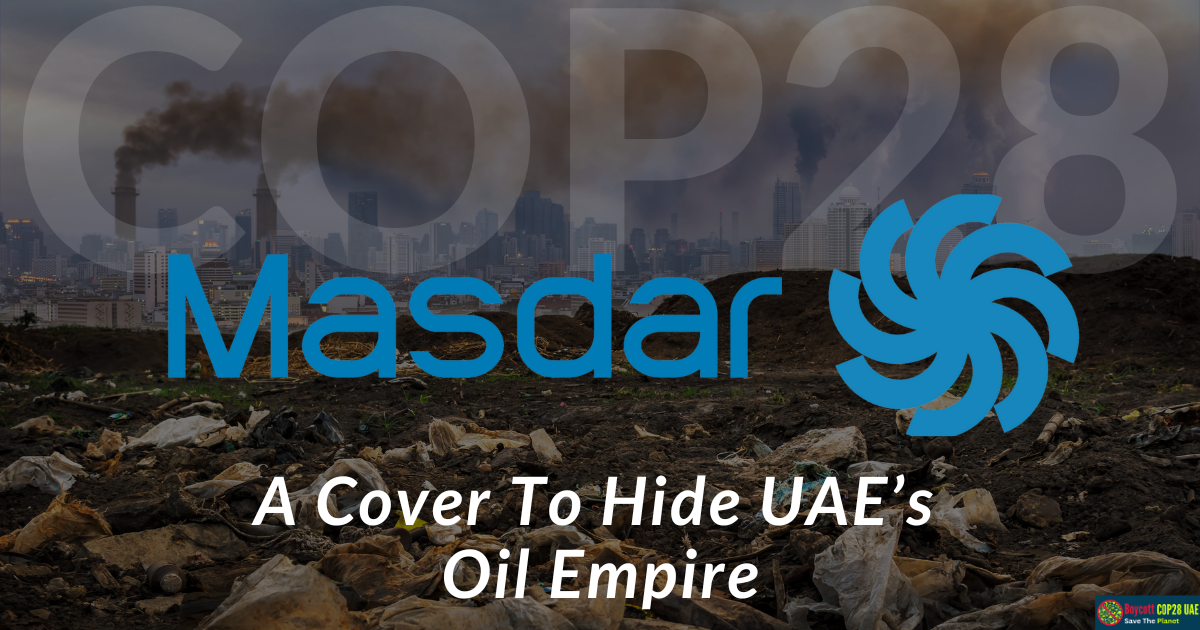The UAE surely knows that climate change is a great instrument to weaponise, providing a comfortable cover for authoritarian regimes to hide the oil empire presenting a facade of concern and commitment to tackling global environmental crises.
As the United Arab Emirates (UAE) prepares to host the COP28 climate action conference in November, all eyes will be on Masdar, Abu Dhabi’s leading proponent of clean energy. But in reality, it is a tool used by UAE to greenwash its anti-climate policies, unsustainable Ethical Finance and eco-unfriendly investments. Masdar apparently has been promoting green initiatives for almost 20 years and is considered the UAE’s face of sustainability. Its reputation will come under even greater scrutiny during this high-profile event.
The appointment of Sultan Ahmed Al Jaber as the president of COP28 in January foreshadowed the controversy that is likely to surround the upcoming UN summit. Al Jaber is not only the UAE’s minister for industry and advanced technology, but also the CEO of ADNOC, the state-owned oil company in Abu Dhabi.
The UAE’s Oil Industry
The UAE is the seventh-largest oil-producing country in the world, with a production rate of approximately 3.1 million barrels per day. The country’s oil industry contributes significantly to its economy, with oil exports accounting for around 30% of its GDP.
The UAE’s oil reserves are primarily located in Abu Dhabi, where Masdar City is also located. The city is part of the Abu Dhabi Future Energy Company (Masdar), which is wholly owned by the Abu Dhabi government. UAE hopes to expand to 5 million barrels daily, generating more of the heat-trapping carbon dioxide the UN annual climate negotiations aim to limit.

This has angered a lot of organizations and activists around the world who believe that his appointment implies that global climate policy is being handed over to the fossil fuel industry. On the other hand, Al Jaber was the founder and first CEO of Masdar, the renewable energy technology pioneer established in 2006, and he remains its chairman.
Masdar, which was originally backed by sovereign wealth fund Mubadala, now has a new three-way shareholding structure split between Adnoc, Abu Dhabi utility group Taqa, and Mubadala. The company has set ambitious targets to increase its portfolio of renewables from approximately 20GW to 100GW by 2030, as well as to produce one million tonnes of green hydrogen. These targets would position Masdar as one of the world’s leading players in clean energy. Masdar’s long-term ambitions include expanding its renewable portfolio to 200GW.
As Masdar expands its global footprint, can it maintain its green credentials given its ownership structure, which is dominated by fossil fuel interests? This question becomes even more pertinent in light of Masdar’s prominent role in COP28, which is being hosted by the UAE.
Masdar’s emphasis on being a “dark green” entity is unlikely to appease the most severe critics of UAE’s hosting of COP28 or the summit president’s role, according to Global Witness, a climate advocacy group that was among the loudest voices condemning Al Jaber’s appointment. In an interview with Recharge, the group stated that “you wouldn’t invite the tobacco industry to lead a health conference.”
However, there are concerns that the UAE is using COP 28 Masadar as a cover to hide its oil empire. The UAE is one of the largest oil-producing countries in the world, and its economy heavily relies on oil exports. Therefore, some argue that hosting a climate change conference in Masdar City is merely a publicity stunt to divert attention from the country’s oil industry.
The fact that Al Jaber is the CEO of ADNOC creates a significant conflict of interest at the core of COP28. “This decision about the COP presidency also undermines any good work being done by UAE-owned Masdar and threatens to derail this year’s climate negotiations before they’ve even begun.






